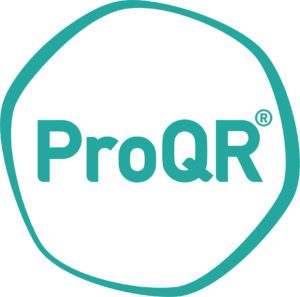Clinical trials, drug development, and medical research have the potential to change the therapeutic landscape for patients with a wide variety of conditions. At ProQR, founder and CEO Daniel de Boer chose to focus his mission on addressing genetic eye diseases. He explains:
There is a very high unmet need within this space and a big need for therapeutics. Five million people in the world have inherited retinal diseases, but only around two thousand have treatments available. The rest go untreated.
ProQR has worked hard towards this mission, with four drugs being tested in clinical trials and a few dozen others in the pipeline for development. In December 2021, I reported on two Phase 2/3 clinical trials (Sirius and Celeste) evaluating ProQR’s investigational RNA therapy ultevursen (formerly QR-421a) for USH2A-mediated retinitis pigmentosa (RP) and Usher syndrome.
Recently, I sat down with three people involved in these trials: Elle, a patient with Usher syndrome; Dr. David Birch, Ph.D., the Scientific Director of the Retina Foundation of the Southwest and Investigator for both studies; and Daniel de Boer. We talked about Elle’s experience with Usher syndrome and her hopes for the trial, the process of research and drug development, and where ProQR hopes to be in the future.
ProQR
ProQR was founded on Daniel de Boer’s patient-focused mission to make the world a better and more inclusive place for those with rare diseases. Prior to the company’s founding, de Boer worked as an IT entrepreneur. However, his world changed when his son was diagnosed with a rare inherited disorder, and he became passionate about helping those with rare diseases.

In 2012, Daniel co-founded ProQR alongside Dinko Valerio, Gerard Platenburg, and Henri A. Termeer, a pioneer in rare disease drug development. Due to the broad applications of RNA therapies, ProQR focused on developing antisense oligonucleotides. To learn more about RNA therapy and antisense oligonucleotides, take a look at this helpful guide.
Daniel explains that RNA therapies, and the ProQR technologies, are uniquely positioned to make a meaningful impact in the genetic eye disease sphere. He noticed this particularly in a Phase 1/2 clinical trial evaluating sepofarsen for Leber congenital amaurosis 10 (LCA10):
As soon as we treated individuals with just one shot of sepofarsen, some patients improved so drastically that they were able to read letters, recognize people, and navigate independently. This offered a tremendous amount of freedom and was a very important data point for us showing that our technology can really make an impact. From that point forward, we decided to find the synergy to accelerate therapeutic development.
In the next five years, Daniel hopes that ProQR will have at least 1+ molecule approved; a further expanded portfolio to target more mutations; and a strategy to apply ProQR’s RNA technology to other personalized medicines.
How ProQR Retains its Patient Focus
Over the last ten years, ProQR has changed, developed, and grown. This can be challenging and stressful at times but also incredibly rewarding to build a company with motivated people who want to make a difference. Daniel says:
Our operations require a multidisciplinary effort: drug developers, scientists, manufacturers, finance, legal assistance. But what is really important for us is hearing from individuals living with the conditions and knowing the benefits.
The patient experience plays a crucial role in ProQR’s overall operation, having been at the core of the company’s mission since it began. ProQR invites patient speakers to share their stories and lived experiences. Additionally, the company works with a wide range of advocacy organizations to raise awareness; meets with a Patient and Caregiver Steering Committee on a quarterly basis to help inform different matters; and brings key opinion leaders, individuals, and caregivers together to elevate the community at their Eye of the Future Forum.
Ultevursen
Ultevursen (QR-421a) is an RNA oligonucleotide therapy for USH2A-mediated RP and Usher syndrome. ProQR discovered the drug in a partnership with a research organization in the Netherlands before diving into preclinical development. In 2019, the company held its first clinical trial for Usher syndrome and RP, which ended in a data readout in 2020-21.

Daniel shares:
The treated eyes stabilized and vision did not deteriorate, while the untreated did in a similar way to the progression seen in natural history studies.
Now, ProQR is running the Phase 2/3 Sirius and Celeste trials to evaluate ultevursen and, in the future, inform potential registration of the drug on a global scale. These global trials are designed to be more accessible to people touched by Usher syndrome or RP. Sirius is designed for individuals with more advanced vision loss, while Celeste is for those who are earlier in their disease trajectory. Due to the findings in the Phase 1/2 trial, many people were enthused at the opportunity to be part of these more pivotal trials.
In Part 2 of our interview, Dr. David Birch will discuss his experiences as Investigator for the Sirius and Celeste trials. Additionally, we will speak with Elle, who was the first participant dosed in the Sirius trial.






